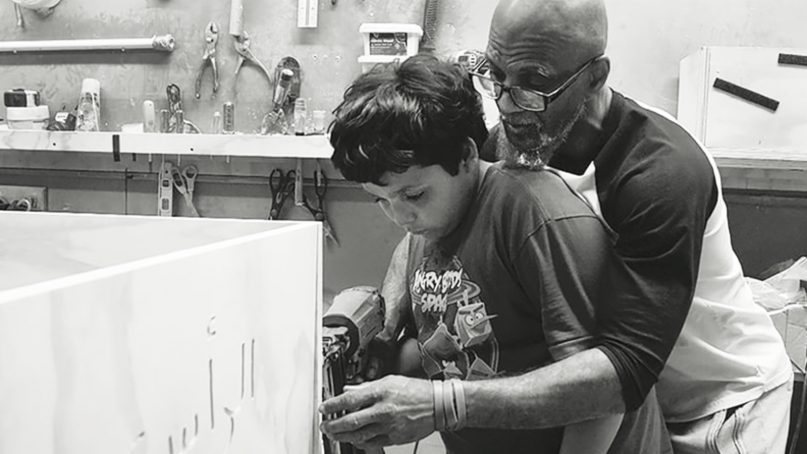(RNS) — A new film uses the life of a Muslim casket maker as a case study in the stabilizing role of ritual in the modern world. Originally released in 2020, the film “Two Gods” opened last week to theaters and will be broadcast nationwide on PBS on June 21.
Prior to its release this month into select theaters and streaming services, the film appeared in multiple festivals around the country.
The film focuses on Hanif, a casket maker and sometime body washer for a Muslim-owned business in the Newark, New Jersey, suburb of East Orange. Hanif takes under his wing two local boys, 17-year-old Naz and 12-year-old Furquan, and teaches them aspects of his trade while offering life lessons. At the same time, Hanif deals with his own personal struggles — he was formerly incarcerated and has an estranged relationship with his own son.
RELATED: RNS Oscars: 10 movies from 2020 with spiritual angles you may have missed
Hanif is a practicing Muslim, and the camera lingers on the role of faith in both Christian and Muslim communities. When Furquan moves to North Carolina to live with his grandmother, he becomes an active member of a local Christian church.
“(The documentary) explores the juxtaposition of grief and the rituals of death with the vibrancy of coming of age,” said director Zeshawn Ali. “The film is a tonal balance between those two worlds, and our choice to shoot in black and white was to show how they’re so delicately interconnected.”
RELATED: Oscar nominee ‘Minari’ spotlights Korean American faith and the role of the church
Islamic tradition calls for quick burial after death. The filmmakers portray janazah, the Islamic funeral and the body washings that go along with it, as an intergenerational moment. The body is wrapped in a white shroud by family members and coffins are often simple affairs.
“When someone dies, their loved ones and leaders in the community come together to wash the body as a way to prepare them for burial,” Ali said.
The film’s focus on Islamic burial practices was a deeply personal one for Ali and his brother Aman Ali, who produced the film. During the multiyear production of the film, the two lost both their father and a grandmother.
The filmmakers choose an ethnographic and straightforward style in part to change the narrative about the portrayal of Muslims in the media. In public statements the filmmakers have noted that the film offers an alternative portrayal of the American Muslim community, one that defies stereotypical depictions.





